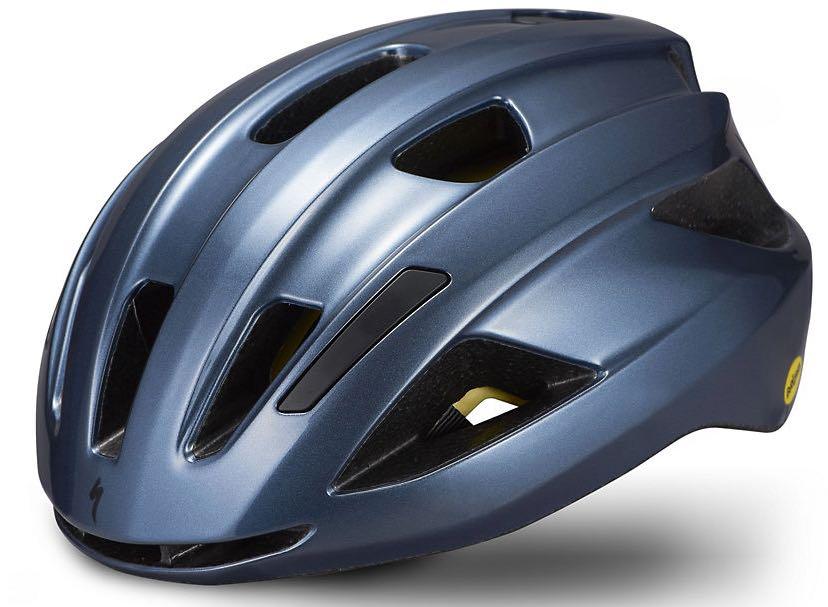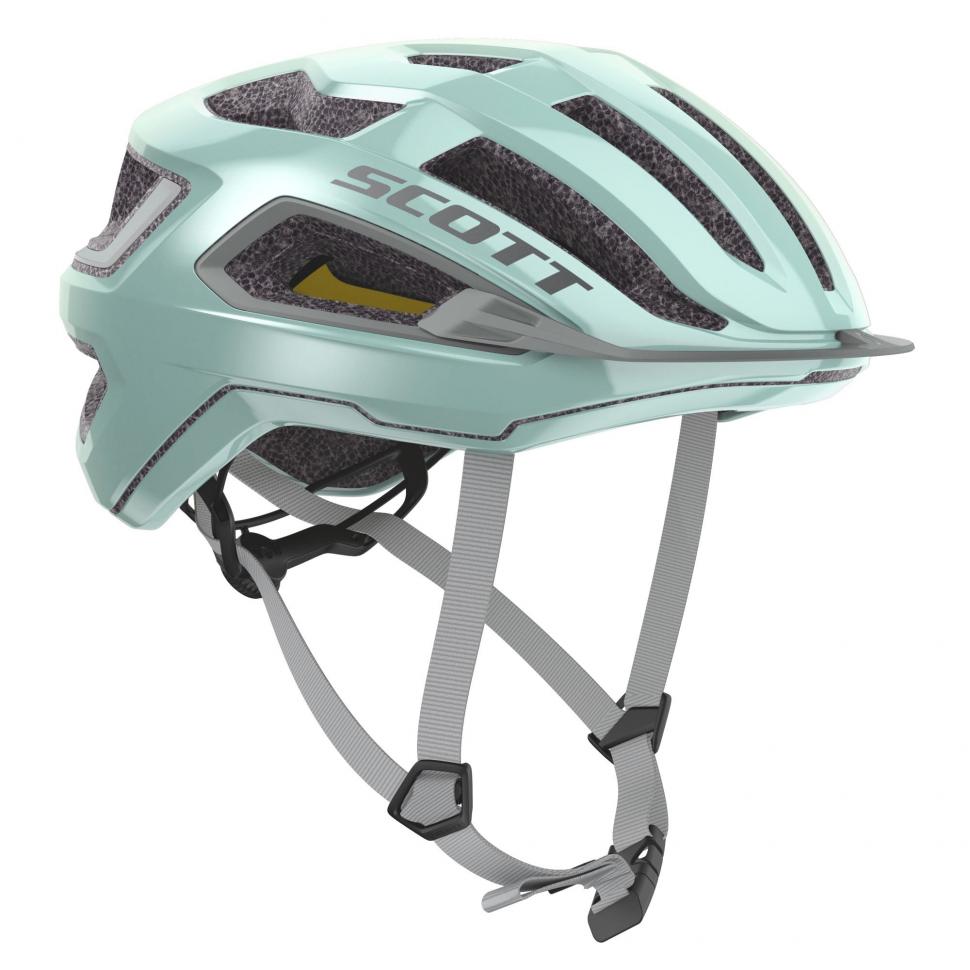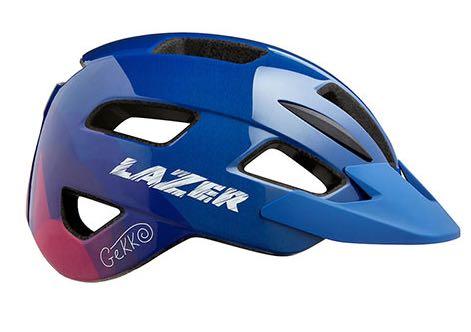- News
- Reviews
- Bikes
- Accessories
- Accessories - misc
- Computer mounts
- Bags
- Bar ends
- Bike bags & cases
- Bottle cages
- Bottles
- Cameras
- Car racks
- Child seats
- Computers
- Glasses
- GPS units
- Helmets
- Lights - front
- Lights - rear
- Lights - sets
- Locks
- Mirrors
- Mudguards
- Racks
- Pumps & CO2 inflators
- Puncture kits
- Reflectives
- Smart watches
- Stands and racks
- Trailers
- Clothing
- Components
- Bar tape & grips
- Bottom brackets
- Brake & gear cables
- Brake & STI levers
- Brake pads & spares
- Brakes
- Cassettes & freewheels
- Chains
- Chainsets & chainrings
- Derailleurs - front
- Derailleurs - rear
- Forks
- Gear levers & shifters
- Groupsets
- Handlebars & extensions
- Headsets
- Hubs
- Inner tubes
- Pedals
- Quick releases & skewers
- Saddles
- Seatposts
- Stems
- Wheels
- Tyres
- Health, fitness and nutrition
- Tools and workshop
- Miscellaneous
- Cross country mountain bikes
- Tubeless valves
- Buyers Guides
- Features
- Forum
- Recommends
- Podcast
TECH NEWS
 2021 Specialized Align II MIPS helmet.jpeg
2021 Specialized Align II MIPS helmet.jpegSwedish safety research recommends three helmets out of 23 tested
A test of 15 cycle helmets for adults and eight children's helmets available to the UK market has resulted in recommendations for three of them for safety. All three incorporate technology designed for protection against rotational forces.
The Road Safety Trust, a body that’s “dedicated to achieving zero deaths and serious injuries on UK roads”, funded the Folksam Insurance Group in Sweden to complete extended safety tests on a selection of helmets available in this country.
Five physical tests were performed by the Research Institutes of Sweden (RISE) which is accredited for testing and certification in accordance with the European standard: two shock absorption tests with straight perpendicular impact and three oblique impact tests. Computer simulations were subsequently carried out to evaluate the risk for concussion.
Of the 23 tested helmets available to the UK market, two adult models and one child’s model were given the ‘recommended’ label (a second child’s helmet not available in the UK was also tested and recommended):
• Scott Arx Plus (adult)
• Specialized Align II (adult)
• Lazer Gekko MIPS (children’s)
To be recommended, a helmet had to be more than 15% better than the average in the test round – both for direct and oblique (angled) impact. This criterion means that comparatively few helmets are ever likely to be recommended. There is no pass/fail standard.
“It is important that when consumers purchase safety equipment they spend their money wisely,” said Oliver Carsten, Trustee of The Road Safety Trust.
“The recommended adult helmets are both general-purpose helmets and relatively low-cost with an approximate price of £80 for the Scott Arx Plus and £45 for the Specialized Align II. The recommended Lazer Gekko MIPS child helmet costs around £50. This confirms that good safety performance does not require high expense.
> Your complete guide to the Specialized road bike helmet range
“All the recommended helmets from the current set of tests incorporate technology for protection against rotational forces, either in the form of Multi-directional Impact Protection System (MIPS) or alternative technologies. In general, helmets with such technologies performed better than helmets without, but it is not the case that all the tested helmets with such protection are recommended.”
> Find out all you need to know about MIPS
For example, the Lazer Urbanize MIPS adult helmet was tested this year and wasn’t recommended, and the same is true of several other MIPS-equipped helmets.
> Read our review of the Scott Arx Plus helmet
This is the third year that the Folksam Insurance group has carried out cycle helmet testing. You can find the full list of recommended helmets here.
Check out the full Road Safety Trust/Folksam Adult Bicycle Helmets 2021 report here
Check out the Road Safety Trust/Folksam Child Bicycle Helmets 2021 report here
For the full report and previous year’s test results visit www.roadsafetytrust.org.uk/cycle-helmet-testing
Mat has been in cycling media since 1996, on titles including BikeRadar, Total Bike, Total Mountain Bike, What Mountain Bike and Mountain Biking UK, and he has been editor of 220 Triathlon and Cycling Plus. Mat has been road.cc technical editor for over a decade, testing bikes, fettling the latest kit, and trying out the most up-to-the-minute clothing. He has won his category in Ironman UK 70.3 and finished on the podium in both marathons he has run. Mat is a Cambridge graduate who did a post-grad in magazine journalism, and he is a winner of the Cycling Media Award for Specialist Online Writer. Now over 50, he's riding road and gravel bikes most days for fun and fitness rather than training for competitions.
Latest Comments
- Gkam84 54 min 5 sec ago
I think that is why blind eyes have been turned in the UK, internationally aswell, with things like the Redhook crits, there were many licensed...
- bensynnock 55 min 43 sec ago
I bought a gravel bike in the autumn and have used it exclusively since, until a few weeks ago when it needed some repair work and I had to wait a...
- Surreyrider 1 hour 12 min ago
You're going to be writing that a lot in the coming months and years, unfortunately for you.
- mdavidford 2 hours 3 min ago
Ahem - other esporters(?) might be rather surprised to hear that the UCI has taken over their events - I think that would be the Cycling Esports...
- Bungle_52 2 hours 12 min ago
I wonder how he got to the game?
- OldRidgeback 2 hours 14 min ago
You'd need some good wet weather gear for that ride too.
- OnYerBike 4 hours 38 min ago
It seems to me that the most likely explanation is that whoever provided that quote fails to grasp the difference between a "public right of way"...
- andystow 4 hours 44 min ago
That article is far too kind to Moses. I highly recommend reading The Death and Life of Great American Cities. Despite the title, it applies to...
- chrisonabike 6 hours 42 min ago
Hub brakes have their own trade-offs. I actually liked the one I had for its particular application - in a "utility" bike where I didn't care...


Add new comment
56 comments
Well that's ridiculous. I'm not going to put on three helmets no matter what they say.
What we all need now is some graphs.
And perhaps a lengthy discussion on causality/correlation.
And a pic of a squirrel inexplicably wearing a helmet...
Actually, the culpability of vermin has already been covered in this thread!
I only wear a helmet in the winter to help keep my head warm, in the summer I do not want a plastic hat on my head.
This uniform of helmet and lycra and poncey shoes does nothing to encourage cycling to the average person, but especially with the helmet obsession, just reinforces the false impression that cycling is dangerous.
Look at pictures of Dutch cyclists, rarely do you see helmets and most wear 'ordinary' clothes.
Don't get me wrong if you want to dress like you just finished a stage of the Tour de France then good luck to you and I wear poncey shoes and lycra myself most days, but helmets? Nah, just paranoia and health and safety gone mad.
Do you realise how many people kill themselves getting out of the bath every year and do you want them to wear a helmet?
Go on, how many?
Nearest I can find is
https://www.theguardian.com/news/datablog/2011/oct/28/mortality-statisti...
29
5 from Accidental suffocation in bed
Yes, I saw that but that's accidental drowning in the bathtub, which can be as a result of seizures, bathing whilst drunk etc. I would imagine the number actually dying of falling whilst de-bathing is quite small and I would guess mainly confined, sadly, to the elderly and infirm. Which is why these comparisons ("I suppose people in cars should wear car helmets" is another stupid one) just don't work: as a (relatively) young and (again relatively) fit person I know that I am highly unlikely to have a fatal fall getting out of the bath, indeed the likelihood is so small it's not worth protecting against; as a cyclist I know that it is highly likely that at some stage, riding around 5,000 kms a year, much of it in urban environments, it's virtually a certainty that at some point I will have a fall either through my fault, someone else's or just plain bad luck, and so I protect against it.
Anyone who has read about the subject knows the evidence for helmets is unclear and there are others factors including psychological ones involved.
A lot of push back occurs as they are presented as some pancea for all ills by people who are commenting outside of their expertise and experience.
Are you Judge Adams ?
They protect your skull not your brain.
Try yesterday's blog too.
You can read a good introduction to Headway here:
https://www.theguardian.com/environment/bike-blog/2014/jul/30/jersey-com...
Few people (if any) are "anti-helmet". Anti-compulsion, perhaps; arguing that there is insufficient evidence of real benefit to warrant such a measure (among other things) or perhaps "anti-bullshit"; of which there is plenty when helmets are being discussed.
I thought journalists had grown up about questioning the attire of the victims of violent crime...
Only if it's relevant. Somebody not wearing a helmet doesn't mean the injuries they suffered would have been sufficiently mitigated - or even mitigated in any way - had they worn one. And that comment from the journalist shouldn't be presenting the factoid as a given conclusion that the cyclist was the author of their own misfortune. Those that do aren't journalists, they're just cheap-rent hacks.
I would question their credentials if they presented such a superficial understanding of the topic.
Bloody armchair expert.
A reasonable description of the journalist in this instance
No, it's not fine when, having been killed through the actions of a car driver, a judge says, in so many words, you killed yourself by your own choice.
Cyclist fell off bicycle unaided, injured head, wasn't wearing helmet - I don't recall ever reading such a report.
Helmetless cyclist suffers head injury in collision with motorist - only has himself to blame. Seems a more familiar tale.
Vermin in your spokes? We're down to the, "if it saves just one life..." fallacy.
If people choose to wear a helmet that's fine. I do. Most of the cyclists I see do too. But it stops being a choice as soon as it becomes a point of censure or a question of legal liability.
The helmet argument has been looked at time and time again. I choose to wear a helmet, but I do so knowing that in anything other than a very minor collision a helmet is going to be about as much use as a chocolate teapot.
I wear a helmet because in the event I am involved in an accident I want to give the other party absolutely no chance to argue that i am partly to blame for any injuries. As was shown in the case in the blog the other day where the judge apportioned some of the blame to the victim because they chose not to wear a helmet.
On the flip side, studies in other countries (Australia if memory serves) found that drivers were more likely to close pass cyclists who were wearing helmets because of the perceived security that the helmet provides.
The only way for a cyclists head to have anywhere near a sensible level of protection would be for them to wear a motorcycle helmet because they are designed with higher impact speeds in mind whereas bicycle helmets are designed to withstand minimal impacts whilst still be light.
I have had a look at some bicycle helmet testing protocols and most of them test at up to 16mph of impact velocity.... The test in question here looked at a velocity of 14 mph. So if they perhaps looked at double those speeds you would see how limited the protection provided by a bicycle helmet in a motor vehicle accident actually is
It's almost as though we have never, ever, discussed helmets on here before...
"a study in the Netherlands"
"75% of accidents THERE"
And how does cycling in the UK compare with cycling in the Netherlands?
Apples. Oranges.
Exactly, and this Dutch argument I see used time and time again by almost every anti (you don't need a) helmet mob.
Facts they all miss:
1) The Dutch cycle much more slowly on upright bikes (they even wear jeans they go so slow), mostly on cycle paths and with few downhills to build up any speed.
2) On the rare occasion when they mix with cars, other motorists are very likely cyclists and there is a culture to be kind to them and the infrastructure favours them.
None of this is like the UK.
I only have 200 FB friends, as keep it for close friends, yet two of them recently had bad crashes and concussions. Took time to recover and both are still not fully over it yet (some brain damage). Imagine if they were not wearing a helmet!
A YTer I watch (Katey K) recently had a nasty crash and was knocked out cold. Again imagine if she had no helmet.
Think! If you get a concussion injury with a helmet on it's going to be much worse without one.
Then they come up with the totally stupid argument that your helmet may stick out a bit and you would have knocked you would have missed totally if you had no helmet on. Can they not think most of the time you will hit your head without a helmet - which is more lethal. But nom that one time when you might catch the edge of a helmet makes all the difference according to them! I swear these people do not have a brain worth protecting!
All Doctors I have heard speak on this subject say helmets save lives.
Yet we have these know it alls who always comment about the Dutch. And link to dodgy websites anyone could set up to show the "science".
I think that puts you in " in the same league as anti-vaxxers and flat-earthers."
Trying to fit in as many logical fallacies as you can ?
Your example of the Netherlands shows where you are going wrong.
I do not doubt that wearing a helmet reduces the consequences of a blow to the head. And yet in comparing the Netherlands with the UK we see that low rates of helmet use correlates with reduced head injuries amongst cyclists. The Netherlands, with the lowest rates of helmet wearing and the highest rates of cycling nevertheless is about the safest place to cycle.
So in terms of public policy (as opposed to individual choice) helmet wearing is clearly the wrong place to invest. In other words, whilst wearing a helmet may save your life, lives are not saved by diverting public resource towards making people wear helmets.
https://cyclingindustry.news/london-has-highest-helmet-use-in-europe-net...
we are very nearly in agreement. We don't have helmet laws in the UK, but we are approaching compulsion by other means, as when the "preventable" in your statement becomes the burden of the cyclist and not the perpetrator.
You know that is an utterly stupid comparison completely unrelated to the evidence. I see you are going on about brain injury so I guess you didn't bother to read the links in here.
I did reckon that 50% of what you post you don't actually believe so I guess I need to up that %.
with you one this Nigel, but Hirsute loves to argue against not wearing helmets. Also Hirsute will take offence if mildly profane language is used, requesting I think filters to be used. One to many punches to the face for being deliberately obtuse, was going to sat a dick but found my filter.
You take a very binary approach on a subject that has grey areas.
I argue where people make assertions about the efficacy of helmets and fail to understand their limitations or just make wild claims with no evidence. I've never said "don't bother to wear a helmet".
Perhaps you are Judge Adam's brother.
Your last sentence makes no sense.
Sadly, lots of people do that.
I guess it saves them having to make the effort to engage with facts they were unaware of (or don't want to know); or recognise that it may be useful to consider a different perspective on such an important topic.
Pages